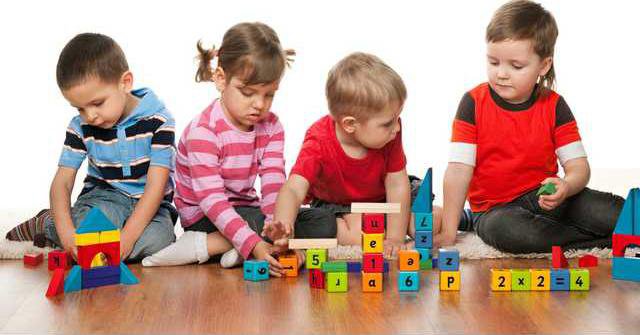The values in the media beat here at the Deseret News National Edition can often be summed up with the quote I hear most often from experts: "We don't know what we don't know."
It's 2015 seven years since the iPhone revolutionized the mobile tech market and 20 since the Internet became a household fixture for many Americans. Yet we still don't have the answers to many of the questions parents deal with every day: How do I keep technology from turning my child into a screen-addicted zombie when their school says it's the key to their future? Should I buy my children toys that teach them to code before they can even read? How can I keep them safe online when I can barely keep up with my work email?
In trying to answer these questions, I sometimes feel discouragingly like my stories end with the journalistic equivalent of a shrug. Even the simple question of how much time spent online is too much changes as fast as researchers can publish a new study.
The perfect example of this conundrum came earlier this year when the American Association of Pediatricians announced it was re-evaluating and updating its once landmark stance on kids and technology: No screens at all before age 2. With the plethora of new information out there, the AAP said, we don't know what we don't know.
"How could they?" bubbled the fountain of comments that inundated my email in response to the story from parents and doctors. How could they backpedal now when there are more screens than ever?
I couldn't blame them for being upset I wanted to scream. For the past year and a half, I wrote two stories a week quoting doctors, psychologists, parenting experts and teachers who saw the recommendation as a gold standard. In an effort to inform parents who come to the National Edition for answers, had I inadvertently done them wrong?
We don't know what we don't know, but on the bright side, major public institutions like the AAP recognize that the stakes are high.
The questions that are inevitably raised on this beat are important and they all deserve answers. In the meantime, all I can offer you for comfort is the second most common thing I hear week in and week out: Technology can replace a lot of things, but it can never replace parents.
Now more than ever, children need their parents to help them use technology responsibly and reap its benefits while recognizing the risks whether it's what can happen when posting photos, which milestones to share on Facebook or simply how to strike a balance between time spent online and offline.
In short, parents are the key to helping young people successfully navigate this brave, new online world. Maybe that's all we really need to know.
It's 2015 seven years since the iPhone revolutionized the mobile tech market and 20 since the Internet became a household fixture for many Americans. Yet we still don't have the answers to many of the questions parents deal with every day: How do I keep technology from turning my child into a screen-addicted zombie when their school says it's the key to their future? Should I buy my children toys that teach them to code before they can even read? How can I keep them safe online when I can barely keep up with my work email?
In trying to answer these questions, I sometimes feel discouragingly like my stories end with the journalistic equivalent of a shrug. Even the simple question of how much time spent online is too much changes as fast as researchers can publish a new study.
The perfect example of this conundrum came earlier this year when the American Association of Pediatricians announced it was re-evaluating and updating its once landmark stance on kids and technology: No screens at all before age 2. With the plethora of new information out there, the AAP said, we don't know what we don't know.
"How could they?" bubbled the fountain of comments that inundated my email in response to the story from parents and doctors. How could they backpedal now when there are more screens than ever?
I couldn't blame them for being upset I wanted to scream. For the past year and a half, I wrote two stories a week quoting doctors, psychologists, parenting experts and teachers who saw the recommendation as a gold standard. In an effort to inform parents who come to the National Edition for answers, had I inadvertently done them wrong?
We don't know what we don't know, but on the bright side, major public institutions like the AAP recognize that the stakes are high.
The questions that are inevitably raised on this beat are important and they all deserve answers. In the meantime, all I can offer you for comfort is the second most common thing I hear week in and week out: Technology can replace a lot of things, but it can never replace parents.
Now more than ever, children need their parents to help them use technology responsibly and reap its benefits while recognizing the risks whether it's what can happen when posting photos, which milestones to share on Facebook or simply how to strike a balance between time spent online and offline.
In short, parents are the key to helping young people successfully navigate this brave, new online world. Maybe that's all we really need to know.

